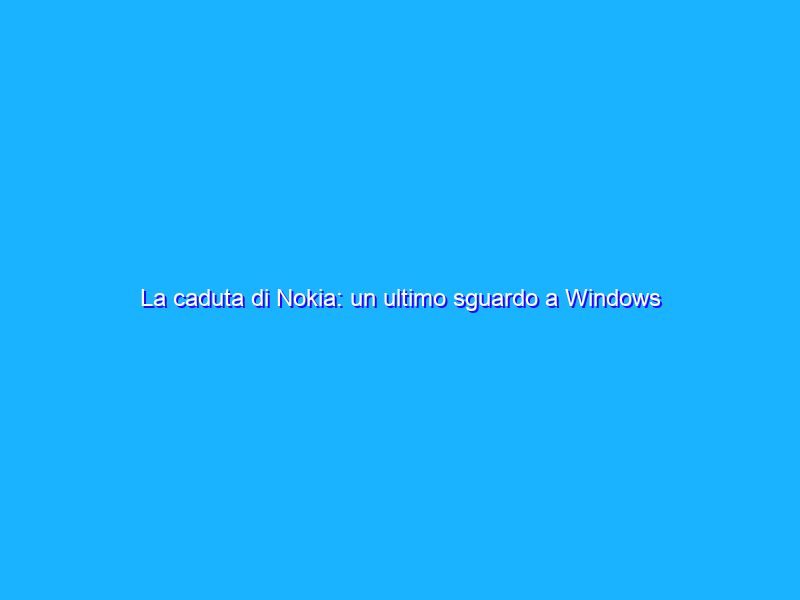Nel 2000, pre iPhone, la capitalizzazione di mercato di Nokia raggiungeva i $245 miliardi. Nel 2013, post iPhone, Nokia viene acquistata da Microsoft per 7.5 miliardi di dollari. L’acquisto ha costretto Nokia a restare legata a Windows Mobile e l’ha portata alla situazione (diciamo, con un eufemismo, non ideale) in cui si trova oggi.
La situazione sarebbe diversa se Nokia avesse adottato Android? L’analisi di Venture Beat merita una lettura:
In the end, Nokia hoped that Windows Phone would make it stand out in a sea of Android and iOS devices — and it did, but not in the fashion it had wanted. Instead, Nokia customers watched their once-mighty brand slowly fade into irrelevance, eventually getting consumed by its ill-chosen partner.
The mobile landscape is littered with manufacturers who lost their way, from Palm to BlackBerry to HTC to Danger. No company is too big to fail, and those that react too slowly to shifts in tastes and preferences can quickly find themselves struggling to catch up. Often, the only path forward requires choosing from a set of unpalatable options. Thanks in part to Stephen Elop’s Rolodex, Nokia’s storied handset division wound up in the arms of Microsoft, a fatal embrace.

